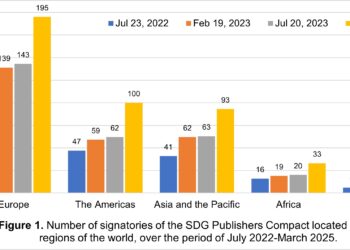
Last week, I and the Kitchen had to weather attacks and subterfuge once again, all because I dared demonstrate that two of OA’s leading lights — eLife and PubMed Central — had colluded inappropriately in creating competitive advantages for eLife, keeping secrets from its own advisory committee, planning editorial matter together, and skipping published requirements in order to accelerate eLife’s entrance into the market. All this was done while other proven and legitimate OA publishers worked to meet published standards, believing they were participating in a fair and unbiased process.
There were three posts last week:
- How PubMed Central and eLife planned together to give eLife launch assistance and to hide this from others
- How PubMed Central considered bending the rules for PeerJ, and then worked with eLife to massage responses to PeerJ
- How PubMed Central and eLife staff kept key information from the PubMed Central National Advisory Committee, among others
All the evidence points to collusion, secrecy, and unethical behavior. Predictably, ad hominem and insulting attacks came my way — more slowly than they normally do, but also more concertedly, as I’ll describe below.
What these OA enforcers failed to realize was that the publishers primarily affected by, and most angry about, the eLife situation were, in fact, OA publishers — of all shapes and sizes.
Word first reached me about the eLife situation during a strategy meeting largely about OA publishing. During the networking breaks, people running OA journals were discussing how opaque and capricious PubMed Central rules seemed to be. When they saw eLife content published on PubMed Central, without benefit of a separate eLife site or the required NLM review process, they were livid. Here was an unproven, high-profile OA publisher short-cutting the rules and getting a market advantage thanks to the US government while the rest of us slog it out? You’ve got to be kidding!
After the first and latest posts appeared, feedback from OA publishers has been quite complimentary. Many are grateful to finally know that their suspicions of favoritism and capriciousness seem justified.
This comment came in explicitly asking to be put on record as an official quote:
Frontiers was very surprised to see how fast eLife was registered. This type of biased and non-transparent selection process is very unfair to other serious open access publishers. — Johanna Reichen, Production Manager, Frontiers
Another publisher of both OA and subscription journals wrote:
Scientific publishers ought to be shouting the theme song from Les Miserables (‘Do you Hear The People Sing, Singing the Songs of Angry Men…..’)! I’m writing to thank you for the blog posts you’re written this week re: PMC, eLife, etc. This kind of reporting – this story – should be in the NYT or someplace where it’s getting attention from both the mainstream population as well as librarians and others with vested interests.
From another publisher whose attempts to get OA journals into PubMed Central were frustrating and hard to fathom:
My initial reaction – it is worse than I thought. I’m disgusted.
And from another:
Thank you for two outstanding posts showing how Lipman has tilted the playing field.
Other positive comments came from some people quite close to PubMed Central.
However, the fact that these posts revealed corruption occurring at PubMed Central and eLife to the detriment of other OA and subscription publishers was all lost on the extremists.
The Mock Twitter Account
As usual, the attacks weren’t subtle. There were the inevitable Twitter insults and skirmishes, the kind where you feel like you’re making headway only to find that you’re dealing with people who will never change their tune.
This time, the attacks went to a new level — I received my very own mock Twitter account. Elsevier had one during the RWA controversy. There have been others created to suit the moment. It’s a weird sort of compliment, I guess, a perverse badge of honor — when irrational actions are the only response to rational arguments based on sound evidence, it’s pretty clear someone’s shooting blanks.
But what to do? It turns out Twitter has become more sophisticated about these things, and there’s a process for getting fake accounts taken down. I’ve followed the procedure, and it should be down soon. But this is how willful some people can be — OA publishers are being mistreated, someone takes weeks to figure out if the problem is innocent or corrupt, finds that it’s pretty corrupt, reveals this openly, and then is attacked for trying to let the community know what they’ve found in a thorough and carefully documented manner.
But some people took a more covert approach to try to influence the debate.
A Strange Commentator Appears
Last Friday, a commentator appeared on one of the PubMed Central posts, responding to speculation that a class action lawsuit may be a possibility for those affected. After a couple of rounds of responses, the comments coming from this commentator started to look a little strange — the voice just “off” enough to draw attention, the reactions somewhat inexplicable and opaque. We took a closer look at the commentator. The email address was a slightly mocking French phrase, and Googling the email address suggested it was a very recent creation — there was no vapor trail of the email address in Google yet, something that you can often find for an email address that’s been in use for a while. Through other means, we were able to determine that the commentator was coming from the NIH/NLM.
So, I emailed the person, asking to learn more about their identity and their relationship to NIH or NLM before approving any more comments. I waited. And waited. There was never a reply. Subsequently, those comments have been removed.
Conclusion
The investigation of eLife and PubMed Central has, thus far, consumed weeks of attention and dozens of hours of analysis and writing. But this isn’t an OA story. This is a corruption story.
Like most people, I dislike being lied to or fooled. I dislike unfairness. And that’s what this story is all about — a lack of accountability; rules being bent, broken, or disregarded; one publisher allowed to cut corners while others struggle to follow the rules; and powerful people benefiting from their connections while others, equally qualified or even more qualified, are shut out, despite assurances of unbiased fairness.
Perhaps instead of shooting the messenger and hoping this distracts people from real problems in the publishing world, we should focus our energies on correcting situations that are unfair to publishers — OA and subscription alike — whose only mistake was thinking they were playing by the rules.
Discussion
12 Thoughts on "Don't Shoot the Messenger — Keeping Our Eye on the Real Meaning of the eLife-PubMed Central Scandal"
Hang in there. You are doing the right thing. And this comes from a 100% OA journal editor that cannot even try to get into “PubMed” through PMC because we publish in Spanish. The Italians have a saying: il mondo e’ paese, which means that these things happen anywhere and everywhere. Sad, sorry and scandalous.
What I want to know, is why is PubMed biased toward publishers in general. I am a scientist, I want them to archive my material. Why do I need a publishers involved at all? Now, there is a scandal which I’d be interested to see you investigating.
I think the answer is encapsulated in one of the emails from an operational person at PubMed Central (not PubMed <– note to quibblers, this is the kind of confusion a lot of academics have, in case you still think we were making this up). Basically, it's too much work for them to take papers and then make sure they create a coherent record over time. By limiting their intake to final published works, they are essentially outsourcing the filtering and composition to publishers, just as academics have done for a long time.
The argument that it is too much work is bogus, I think. 20 years ago, this form of outsourcing made sense. Now, it doesn’t. Give me an API, and I will have all my content uploaded in a jiffy. And I will write code so that anyone can do this. As for filtering, I think you mean “publication bias”. Problematic in many fields, fatal in medical literature. Not really something to be proud about.
It is not “final, published works” that they are limiting to. When I publish my own material, it is final and it is published. It’s stuff published by a selected set of publishers who they have choosen. In fact, this is what you are complaining about, that you don’t like their selection proceedure. I agree. They should be selecting authors, not publishers. The former count. The latter are irrelevant.
PubMed->PubMedCentral — good call! Thanks for correction.
Just because you call something “final” doesn’t mean it’s final in the eyes of the reader or within the scientific community. Journals provide third-party validation of works. Filtering helps content find the right audience, and has been shown to increase citation rates because of it.
Here’s a list of some things journal publishers do. Authors shouldn’t spend their time doing these things — it takes too much time away from their research: http://scholarlykitchen.sspnet.org/2012/07/18/a-proposed-list-60-things-journal-publishers-do/
It’s final because it’s never published anywhere else. I don’t think journals do provide third-party validation. Reviewers do this.
Things publishers do: “most journals have a custom path for rapid publication”. Yes, this is why authors have to fight with one crazy manuscript submission system after the next, constantly checking to see whether the publishers have managed to break things. Tell me, why do you host these articles, rather than using one of the excellent custom paths for rapid publication you talk of?
Reviewers have to be recruited, organized, and administered, a process that is time-consuming and expensive. Blinding manuscripts, tracking reviewer performance over time, ensuring rapid review, and dealing with conflicts of interest are all part of the work of managing reviewers. It doesn’t happen by magic. Also, peer-review is a necessary but insufficient editorial process. Other editorial functions — editorial review, manuscript editing, fact-checking, math-checking, statistical review, technical review — all work to make papers better for readers.
Online systems require constant attention, and that’s expensive, too.
Ho ho ho. ‘fact-checking, math-checking, statistical review, technical review’. Aren’t those the referee’s job?
“When I publish my own material, it is final and it is published”
And in many cases it is never read. There are more papers published in my field than I will ever have time to read. Hence I read only those that are directly relevant to what I am doing, those from groups that I know and respect for doing interesting work, and those that are published in a short list of journals that publish the best work in the field. If I don’t know you, and your self-published manuscript is not absolutely clearly directly relevant to my current projects, that manuscript goes to the bottom of an ever-increasing pile of stuff I must think about looking at after I retire…
So, how about mounting a petition for people to sign recommending an investigation by the government Ethics Office? I’ll sign.


